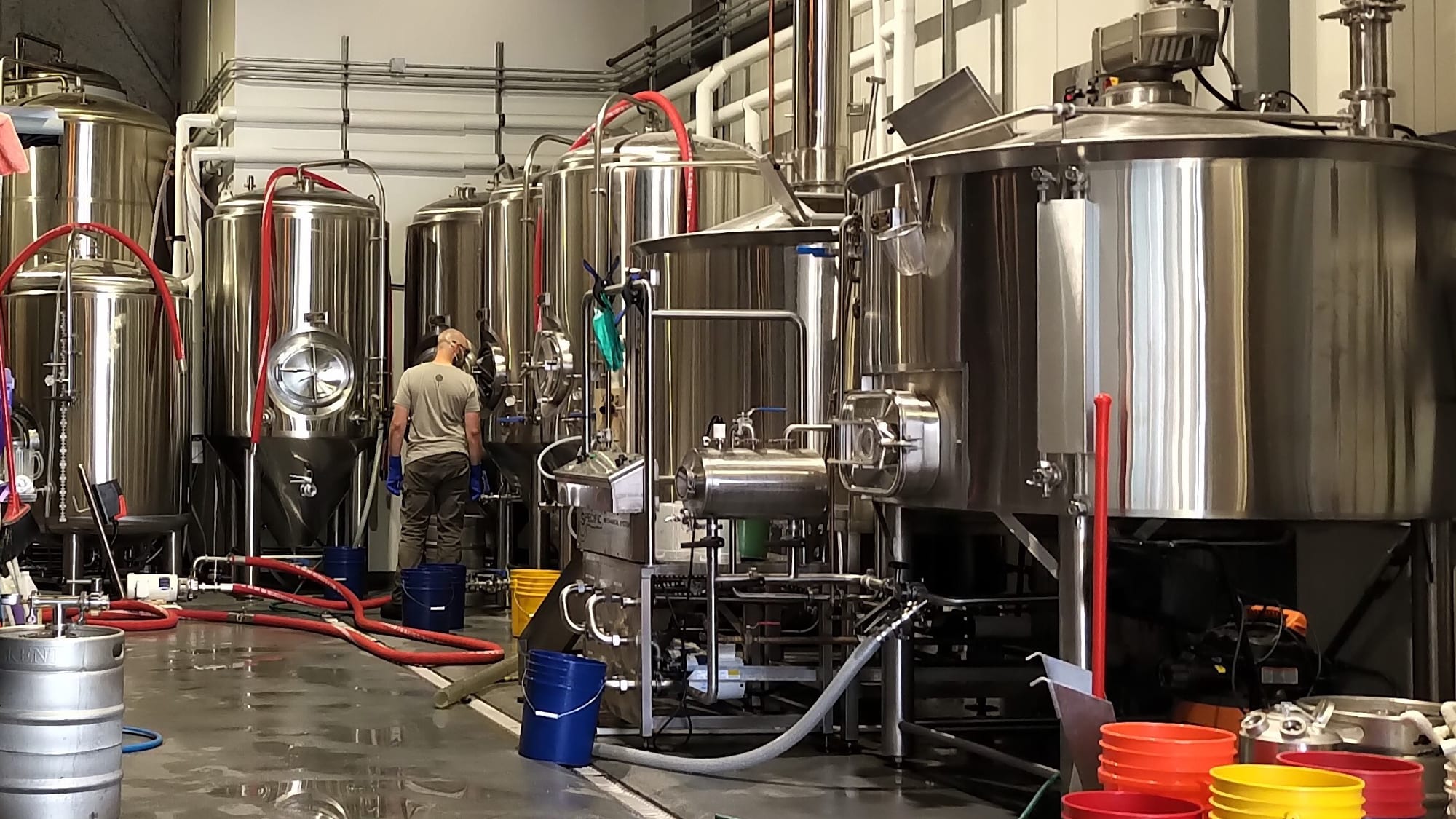Creativity and ingenuity are words Shane Groendahl likes to attach to Alberta’s craft beer industry. They fit. At the 2020 Canadian Brewing Awards, our brewers earned 39 medals—nearly a quarter of the total—including 16 gold.
But it’s more than medals that impress Groendahl, co-owner of Lacombe’s Blindman Brewing and a board member of the Alberta Small Brewers Association (ASBA). He emphasizes how such award-worthy attributes work to build and sustain the industry itself. Those characteristics have never been clearer than during the COVID-19 pandemic.
Each year, Groendahl explains, Alberta brewers gather to produce Unity Brew, a limited-edition beer for Alberta Beer Week. They also regularly share knowledge, equipment and whatever else might forge a strong, sustainable brewing community.
For this fall’s Unity Brew, brewers worked together to come up with new ways to overcome the challenges of a global pandemic—just like the rest of Alberta. “This year,” he says, “we’ve had to pivot.” Physical distancing measures meant brewers lost a rare opportunity to hang out together, but beer drinkers are in for a rare treat: ASBA’s answer to COVID-19 was to brew in solidarity, but apart.
The 2020 Unity Brew, a Scotch ale, was crafted on September 11 at not one but five breweries: Canmore Brewing, SYC in Edmonton, and OT, Railyard and Village breweries in Calgary. Each one was tasked with using ingredients from select local maltsters (all of which donated materials, as did vendors of cans, labels and package design) to craft a unique beer that nevertheless reflects the characteristics of Scotch ale. For Groendahl, a beer in that style is amber coloured, malty, sometimes smoky, and a wee bit strong.
The whole process is “a really good way to showcase each brewer’s creativity and ingenuity,” he says. Since 2018, all profits from the of the collaborative beer’s sale have helped fund ASBA, which advocates for and supports roughly 115 member breweries, about 90 percent of the province’s craft beer makers. “It’s a really strong show of support for the industry itself,” Groendahl adds.

can designs
It’s also a good way to launch Alberta Beer Week: the five new brews will officially be released as part of the province-wide celebration running from October 16 to 24. Though the festivities have been scaled back due to the pandemic, breweries still plan on marking the occasion various physically distanced ways. There will be opportunities to compare each Unity Brew (make sure you enlist a designated driver, given the beer’s six-percent alcohol content), but styles to please all palates will always be on tap—from light lagers to aromatic IPAs to rich stouts, many of which are made with Alberta-grown barley.
“From field to glass, it’s a really good local story,” says Blair Berdusco, ASBA executive director. That story, and impact, goes beyond farming, she adds. Craft beer has created jobs from Grande Prairie to Lethbridge and from Banff to Lloydminster. And they’re not only in breweries. The craft beer boom has also given a boost to restaurants and bars, plus other Albertans whose efforts help to bring local beers to market: “It’s marketing, sales, label design—beer brings in so many people with skills from other industries,” Berdusco adds.
As the autumn chill deepens, Berdusco hopes one outcome of Alberta Beer Week is that people will consider buying local craft beers long after patios close. That’s when offsales will become key to brewers’ revenue, given restricted taproom capacities. She’s confident consumers will do just that. “People like to support the local story and local businesses,” she says.
The province’s craft brewers operate unique businesses with unique products, Berdusco adds—and Groendahl agrees. In the brewhouse and the taproom, in cities and towns, they’ve both seen how eager Albertans are to unite to raise a pint in support of the industry.
“At the end of the day, beer is fun,” Groendahl says. “We enjoy what we do, and we enjoy the industry and the community we’re building around it.”
ALWAYS DRINK RESPONSIBLY
Bring a designated driver when visiting craft breweries anywhere in Alberta—and know your own limit when sampling.
Scott Messenger is the author of Tapping the West: How Alberta’s Craft Beer Industry Bubbled out of an Economy Gone Flat.
